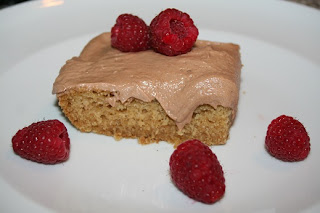I recently started working with a sprout grower from Cantley, Quebec Canada. ‘Magic Foods’ is an organic sprout company that was started one year ago by Contractor, Claude Rowe. He is experiencing tremendous growth in this short time and his sprout business was born out of necessity. Claude’s girlfriend, Johanne Roy had been ill for some time with Chronic Fatigue and it had been recommended to her that eating living sprouts just may help her condition. They shopped around and found very little appealing sprouts available to them and so they decided to start growing their own at home for personal benefit. Claude saw this as a need in the natural food industry that was sadly lacking and he set out to build a business. I am happy to report that Johanne is experiencing more energy and Claude has quit working construction to focus on building Magic Foods!
My second visit from Claude, came with sprout samples from Johanne, and I am not a food waster so was obliged to start eating sprouts. Really it was Johanne’s infectious dedication to eating her sprouts and educating all who will listen that got me hooked. It has only been a few weeks and after the ‘exhausted’ stage of introducing a new living food to my daily regime; I am starting to feel the benefits of sprouts. I am sure I will have more to report at a later date.
Sprouts and micro greens have long been thought of as healthy foods, but it is only in recent years that the mainstream public are learning how nutritious they really are. Sprouts are high in protein and fiber, rich in vitamins and minerals, high in enzymes that help with digestion. This is the information Claude gives to retailers to educate the customer and I found it to be written in terms we can understand without getting technical:
Did you Know?
Your organism will find in sprouts all it needs to be healthy... all with superior quality!
Alfalfa - Its nutritional qualities are significant: lots of protein, calcium, potassium, magnesium, iron, vitamins A, B1, B2, B3, B6, C, D, E, K. You should consume them on a regular basis.
Broccoli - From the cabbage family, broccoli, like all related vegetables, has a wealth of benefits and is known for its anti-cancer properties. Also an excellent source of vitamins C, A, potassium, iron and zinc.
China Rose Radish - This vegetable is interesting as it detoxifies the liver, drains the kidneys and clears up the respiratory tract if you have a cold, asthma, bronchitis or sinusitis.
Red Clover - Sprouts rich in vitamins B, C, E and provitamin A and minerals. Boosts the immune defense system and slows down the cell aging process due to its antioxidant proprieties. Most appropriate for women. Alleviates menopause and osteoporosis symptoms. Also prevents cardiovascular problems and relieves coughs, eczema, psoriasis and itchy skin.
Spicy Lentil Crunch – Mix of alfalfa, red clover, radish, mustard and lentil that is rich in calcium and vitamins B and C.
Crunchy Bean Mix – Mix of garbanzo beans (chick peas), lentils as well as green peas that are affluent in iron, phosphorus and vitamins B1, B2, B3, C and A.
Sunflower – It’s a magic seed that contains almost all the nutriments we require daily: calcium, magnesium, potassium, protein and vitamins E, A and D.
Buckwheat – The richest in magnesium, as well as iron, zinc and vitamin B.
Wheatgrass – Wheatgrass juice is one of the most complete food nature has to offer. High concentration of chlorophyll, rich in vitamins B-12, B-6, K, C and beta-carotene (A).
Kale - Kale sprouts are considered a powerful antioxidant and anti-inflammatory properties . Kale sprouts contain high amounts of vitamin K, C, A, beta carotene, lutein, zeaxanthin, calcium, chlorophyll, sulforaphane, plus other phytochemicals and nutrients. Kale sprouts are also enzyme rich.
Mung Beans - Mung bean sprouts are the most commonly consumed sprout on the planet, and for good reason. They are a great source of vitamins E, C, B and A as well as potassium, magnesium, iron, calcium and protein.
As per my usual shtick, I recommend that you do your own research and here are a few sites that you can meander through:
Most often, it is Lyndsay who founds great products to introduce to our own diets and to offer information in our newsletter but I think this is something that Lyndsay is considering introducing to her diet as well. If any of you have a story, information or perhaps a recipe that you would like to offer, we would be happy to a have a read and consider using your material in the very near future.
Happy Sprouting,
Laurie and Lyndsay



